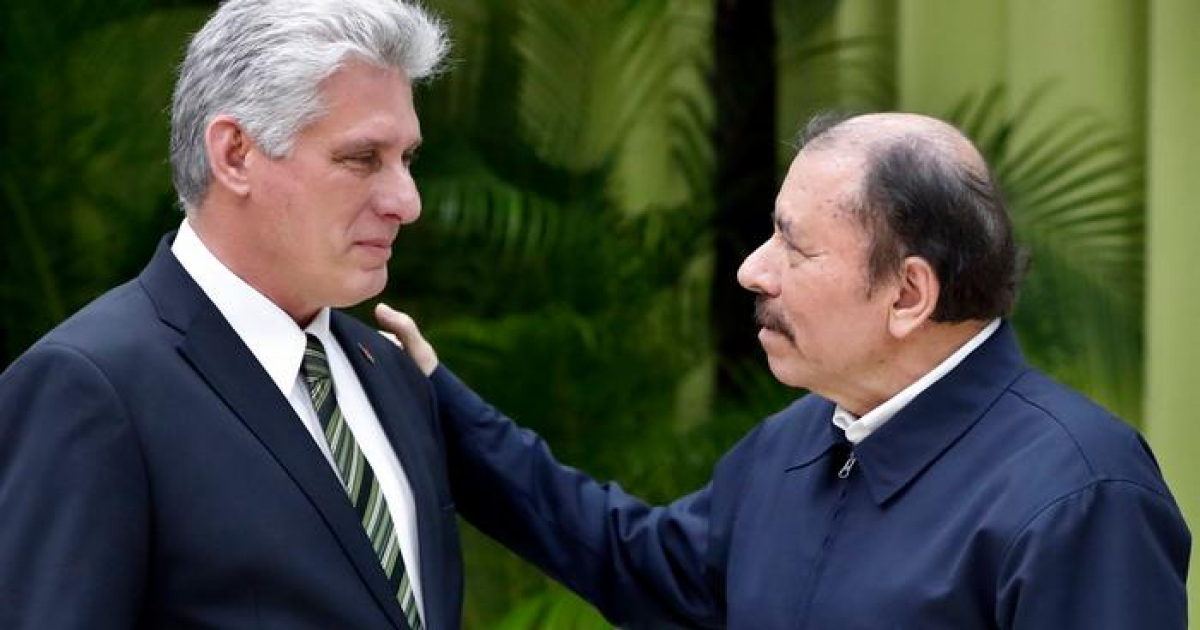
Nicaragua has become a strategic point for irregular migration to the United States, facilitating the transit of thousands of people seeking to avoid the dangerous journey through the Darién Gap.
Under the administration of President Daniel Ortega, the country has waived visa requirements for several nationalities, allowing migrants from different parts of the world to arrive by plane in Managua and continue their journey north. This has become a lucrative business for the Sandinista regime, as stated in a BBC article titled "Nicaragua's millionaire business as a gateway for irregular migrants to the US."
This policy has encouraged changes in several countries in the region like Cuba. Following the anti-government outburst on July 11, 2021, Ortega gave a show of support to the regime in Havana, an old ally, and eliminated the visa requirement for Cubans in order to alleviate the pressure from the internal crisis in the country.
Since then, the island has experienced the worst migratory exodus in its history, with over half a million people having left the country.
The BBC article states that in the last two years, more than 5 million migrants have crossed the southern border of the United States irregularly, with many of them using Nicaragua as an entry point; through which the Nicaraguan government earns revenue from airport taxes, visa fees, and other services.
In 2023, approximately 1,200 private flights were recorded destined to transport migrants to the southern border of the United States from far-off countries such as India and Kazakhstan, but also from neighboring nations like Cuba and Haiti, the text details.
According to the Nicaraguan news outlet Confidencial, between January and October 2023, the government would have collected around $65.9 million in fees or fines from passing migrants, while in the first three months of 2024, the figure would reach $8.4 million.
However, it is believed that the benefits for the Nicaraguan government are much greater, as a one-way flight ticket from Cuba to Nicaragua in the last two years cost around $3,000, and each migrant usually pays between $10,000 and $15,000 for the entire route from the place of origin to the border between Mexico and the United States, according to the report.
Part of these amounts paid to intermediaries or agencies by the hundreds of thousands of users of the Managua route would have ended up in the hands of Ortega's government and its associates, as reported by the BBC.
Analysts indicate that the Ortega regime is using this situation not only to obtain economic income, but also as a political tool to pressure the United States.
Arturo McFields, exiled journalist and former Nicaraguan ambassador to the OAS, emphasizes that Ortega has promoted these flights and has established embassies in several sending countries to better coordinate this activity.
Nicaragua benefits politically by managing this migratory valve, using the flow of migrants as a card in future bilateral negotiations with Washington.
It must be remembered that the governments of Cuba, Nicaragua, and Venezuela have used the migration issue to pressure the United States and thus obtain some type of benefit," McFields affirms.
This strategy, however, represents a significant challenge for the Biden administration, which sees this practice as a threat to its security.
The massive arrival of undocumented immigrants saturates the resources of US authorities and increases the risk of entry of people with criminal or terrorist intentions.
Despite the concerns expressed by the United States, the Ortega government has decided not to collaborate in reducing irregular migration, maintaining absolute silence on the matter.
Meanwhile, the lucrative business of facilitating irregular migration continues to thrive in Nicaragua.
What do you think?
COMMENTFiled under: